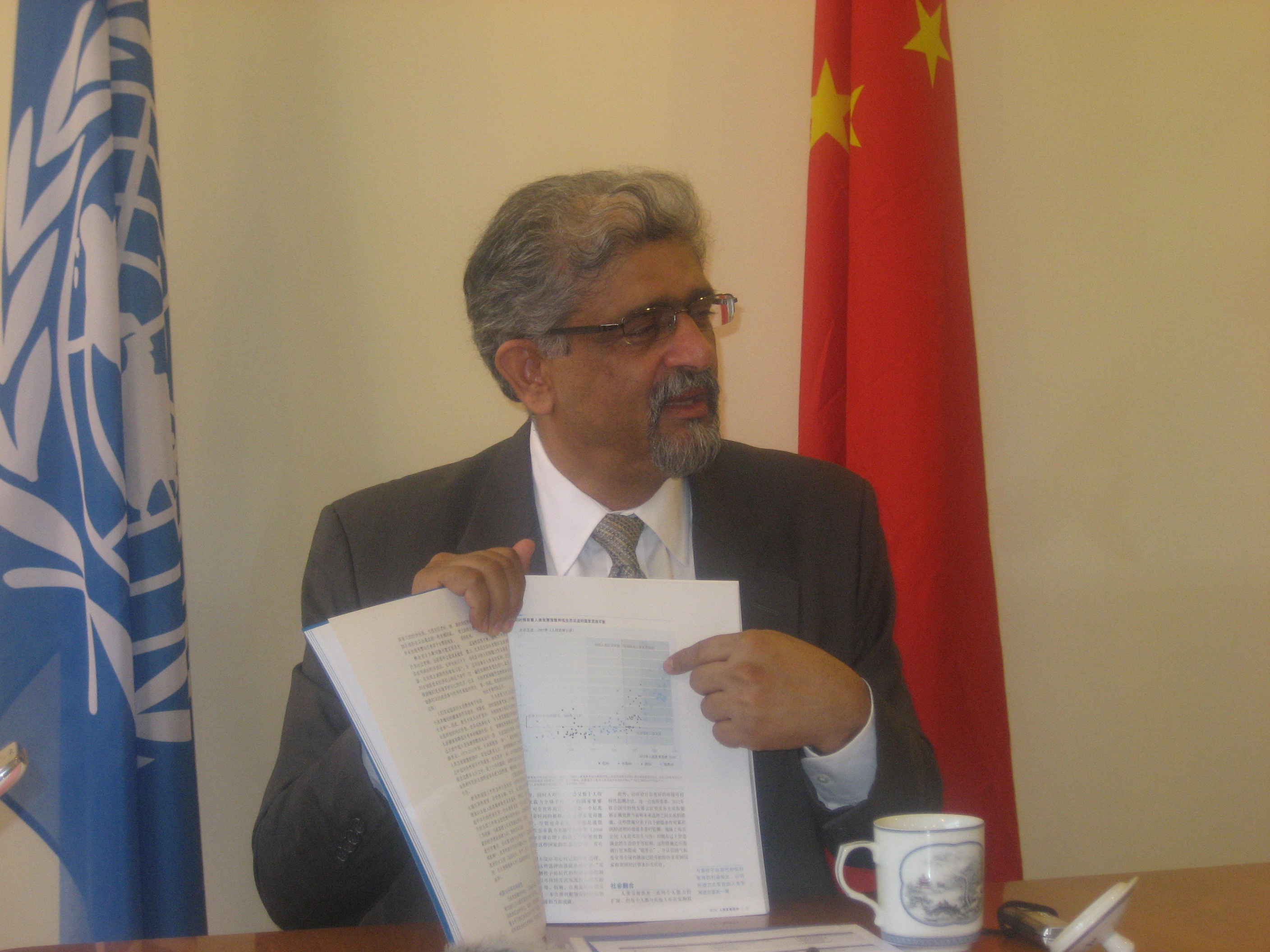BRICS: a harbinger of change

Khalid Malik speaking at a press event hosted by the UNDP China Office, Beijing
On March 28th, Khalid Malik, director of the Human Development Report Office at the United Nations Development Program, spoke with the press in Beijing to discuss the recently launched 2013 Human Development Report and elaborate on the challenges and opportunities for the BRICS and the South.
The 2013 report centers on the rise of the South. In recent years, observers have taken an increasingly keen interest in the BRICS countries. However, Mr. Malik noted that these analyses tend to be rather restricted, both because they place too much emphasis on income and focus on only a few countries. The rise of South is a much broader phenomenon. Not only BRICS are changing, but also countries like Turkey, Indonesia, Nigeria, Chile and Mexico are undergoing rapid transformations. “40 countries in the South are doing better than expected,” he explained, stressing that a central theme of the report is that these countries should play bigger roles in global issues.
Mr. Malik elaborated that the BRICS are a sign of shifting global balance. They demonstrate a common vision that recognizes that the world is changing, and it indicates a shared aspiration, Mr. Malik said. “A rebalancing of the world is taking place. New opportunities are emerging; the risks in the future have to be managed and there are also implications for how we govern the world in a better, more stable way. ”
In his opening remarks, Mr. Malik noted the historicity of the present, observing that “the industrial revolution affected some 150 million people; the rise of the South affects 2 billion.” Enabling people to benefit from the rise requires a broader conception of human development, he stressed. Traditional measures of human poverty tend to focus exclusively on income. One of the novel and important features of the report is its use of the multidimensional poverty indicator, which incorporates health and education in its rubric. Malik particularly emphasized the importance of education. He cited the success of the Scandinavian countries’ implementation of compulsory education policies in the late 19th century in laying the groundwork for their current high standards of living. They made these decisions with lower income than some developing countries have now, he explained.
Environmental protection is also a very important factor for maintaining sustainable development. “‘Pollute first, then clean up later’ is turning out to be a very expensive way to develop,” Malik noted. He urged that everyone should be an ecological citizen and strive to live harmoniously on a shared planet.
For maintaining sustainable growth, it is also important to create a system that can benefit all of its partners. Long term growth is not sustainable if everyone involved does not benefit. The announcement of the establishment of a BRICS development bank made at the BRICS Summit is a good step forward, Malik commented. He said it is a win-win model that is not only conducive to Southern development, but can also benefit the North. It will lay a base for a new financial instrument. “Currently, developing countries have about 6.8 trillion (U.S.) dollars in reserves. Developed countries have 3.5 trillion. That 6.8 trillion goes well beyond what is necessary for insurance,” Malik explained. “With new financial instruments to help development, (developing) countries could see a much greater return on their capital.”
The UNDP Human Development Report is a critical reference both for policymakers and researchers. The online link to the 2013 report has already received 4 million hits. “We are the most visited website of any international organization,” said Malik.
The 2013 Human Development Report is subtitled as “The Rise of the South: Human Progress in a Diverse World,” reflecting its themes. It was launched in Mexico City on March 14th.
